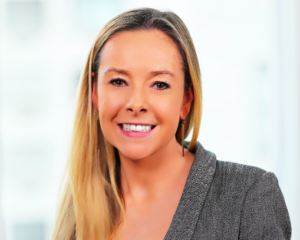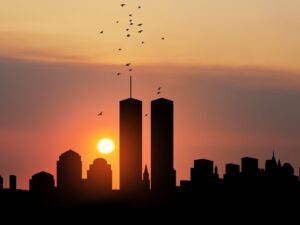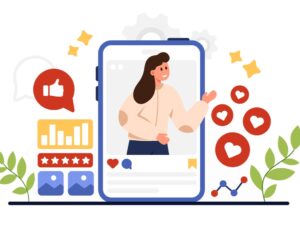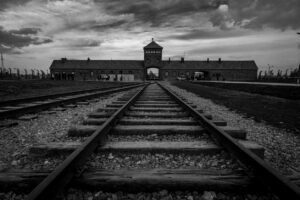The Olympics are a golden opportunity for communicators
Big events offer brand-building benefits alongside the opportunity to engage employees in sponsorship activation.
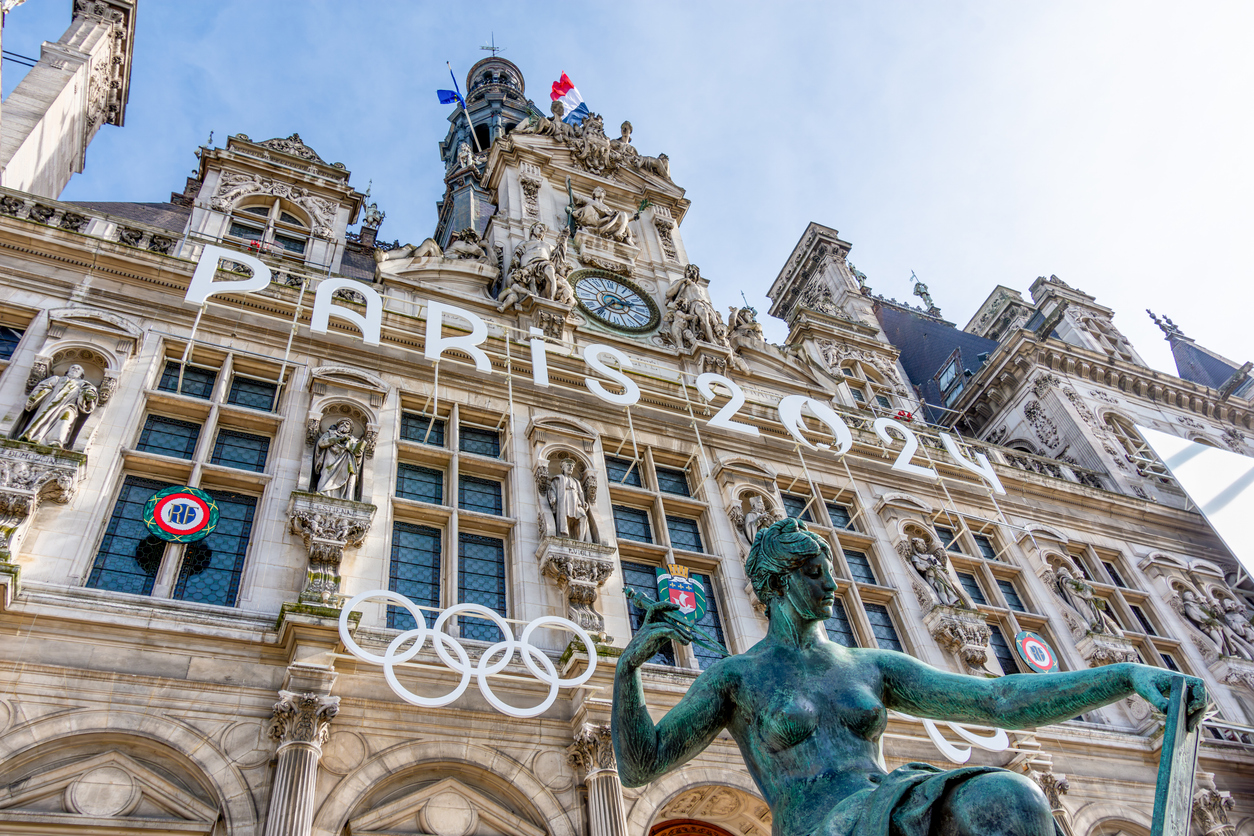
Facade of the town hall of Paris, France, decorated for the Olympic and Paralympic Games.
Paris became the center of the athletics universe on July 26 when more than 10,000 of the best athletes from around the world descended on the City of Light for the 2024 Summer Olympics.
For the companies that sponsor the games, this is a rare and powerful opportunity to put their name in front of a global audience of potential customers. Coca-Cola, Visa, Toyota, Airbnb and Intel are among the big brands making their names known in Paris.
For Guild, a platform for employer-provided education, the Paris Olympics are an opportunity to make a splash in the branding pool, as well as engage internal employees and turn them into brand ambassadors.
The Denver-based company is in its first year as the official education provider for Team USA. Their marketing campaign kicked off earlier this month with a brand awareness campaign called “What the Heck is Guild?” featuring some of the U.S. Olympic and Paralympic athletes.
“There’s been so many ripple effects that we’re just starting to see and this has been one way for us to bring folks together, to galvanize us [and] reinvigorate folks around our mission at Guild, to see it play out in such a meaningful way,” said Rebecca Biestman, Guild chief marketing officer.
The brand-building benefits of sponsorship
This is Guild’s first foray into the world of sports sponsorship, and Team USA was a natural place to start.
“What we’ve been searching for is a partnership that really reflected both the ethos of our brand, which is helping talent to rise, and also a place where we could meaningfully instill and install our platform to a population that really needed it,” Biestmann said.
As part of their sponsorship, Team USA athletes will have access to tuition-free education programs available through Guild’s learning marketplace, including degree programs through Purdue Global and professional development courses from eCornell.
The vast majority of Olympic athletes pause or stop their education to compete, Biestman said, and their career prospects after competition, unless they are the top 5-10% sponsored by big brands, are limited.
“What really appealed to us about this was that you had a population that could leverage what we do day-in and day-out, so that it was a business-aligned sponsorship as well as a great opportunity to build brand awareness and brand affinity with a really well-known partner like Team USA,” Biestman said.
Beyond getting the 5,000 current and former athletes enrolled on the platform, Guild’s goals are to build brand awareness and to develop their channel business.
“One of the aspirational goals we have as a business is to make sure that any working American knows that a benefit like this is available to them to start their education, to continue their education or to get career services,” Biestman said.
That broad consumer awareness in turn creates upward pressure on the employers who pay for employees to access Guild’s platform. Sponsoring Team USA allows Guild to amplify that voice by getting an audience with large employers in a way they might not normally be able to, she added.
An Olympic-sized opportunity for employee engagement
The brand benefits were clear upfront, but Guild is also using their sponsorship as an opportunity to bring together internal and external communications.
“It’s been such a great opportunity for the teams to come together again around one shared mission, which is how do we amplify this and get internal and external audiences galvanized and invigorated around what we’re doing,” Biestman said.
The benefits for employees are tangible because of the excitement around the Olympics and Team USA, but also because Guild’s career growth coaches will actually get to work with the athletes who register for their programs.
“So much of our company is going to be able to touch this in a meaningful way,” she added. “We’ve even seen just with the campaign launching yesterday on social, so many reposts, so many shares for employees, so many employees excited to talk about this in a way that makes them feel like an evangelist of our brand in a very tangible way where normally you have the brand teams and the marketing teams who sort of serve as that purpose.”
In a post-COVID world with a distributed workforce, it’s harder to feel connected to colleagues, she said, and sponsorship of sporting events like the Olympics and Team USA are ways to boost the employee experience.
“It’s been very exciting for our employees, and I think that employers probably across the world, definitely across America, are struggling with what are those moments where we can bring our people together,” Biestman said.
It’s not just the Olympics: Home Depot and the NCAA
The Olympics aren’t the only opportunity that brands have to engage their internal audiences in their sponsorship of big sporting events.
The Home Depot, the largest home improvement retailer in the U.S., has engaged in several sports sponsorships across professional and collegiate sports for many years, said Paul Mayer, director, internal communications at the Atlanta-based retailer. That includes sponsoring March Madness, the annual NCAA men’s and women’s basketball tournaments. This year’s sponsorship included a commercial series featuring NBA great Shaquille O’Neal.
“We had some fun with an internal call for auditions, and the associates who appeared in the ‘Tips From the Tool Shaq’ commercials were actual associates from our stores and other locations,” Mayer said.
The Home Depot also sponsors College GameDay, the weekly college football pre-game show broadcast on ESPN from the campus of the team hosting that week’s featured game.
“Our ongoing partnership with College GameDay, built by The Home Depot, has been an associate and customer favorite for more than 20 years,” Mayer said. “During the season in the markets where College GameDay visits, we utilize our activations as a way to recognize deserving associates.”
While sponsorships are often run by marketing, it’s important to think through the many other external and internal activation points to make the most of these high-profile events in the long term. Guild’s sponsorship will continue through the Los Angeles games in 2028.
“When you’re thinking about planning especially early on, if you’re not thinking about all of the stakeholders across your business that you’re going to need and you bring on internal comms as an afterthought, it’s never going be as successful or as helpful,” Biestman said.
Paul Mayer and The Home Depot are members of Ragan’s Communications Leadership Council. Learn more about joining here.

